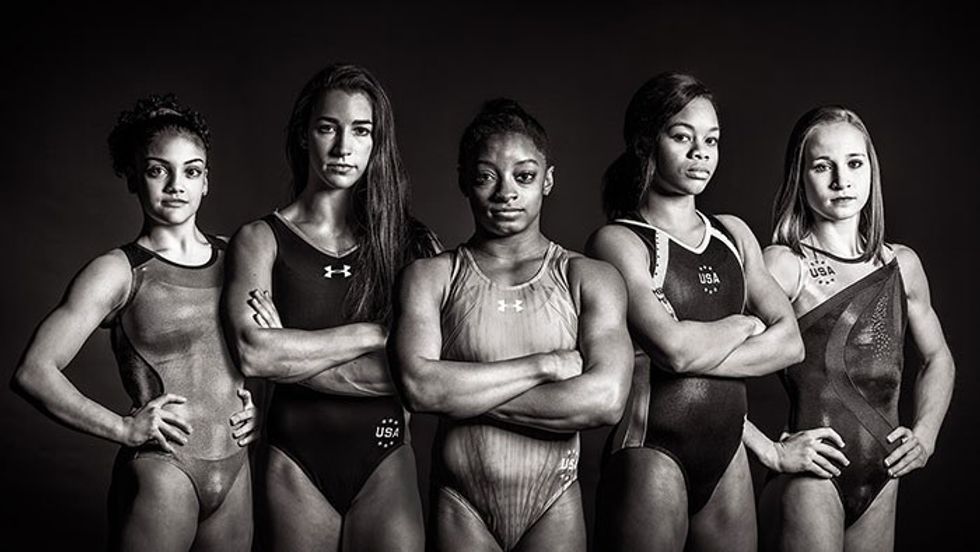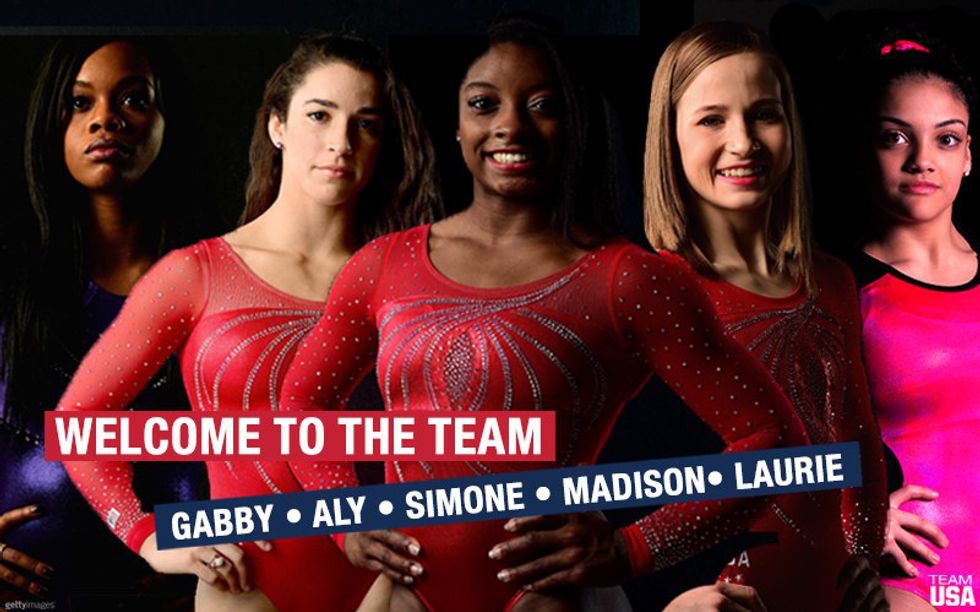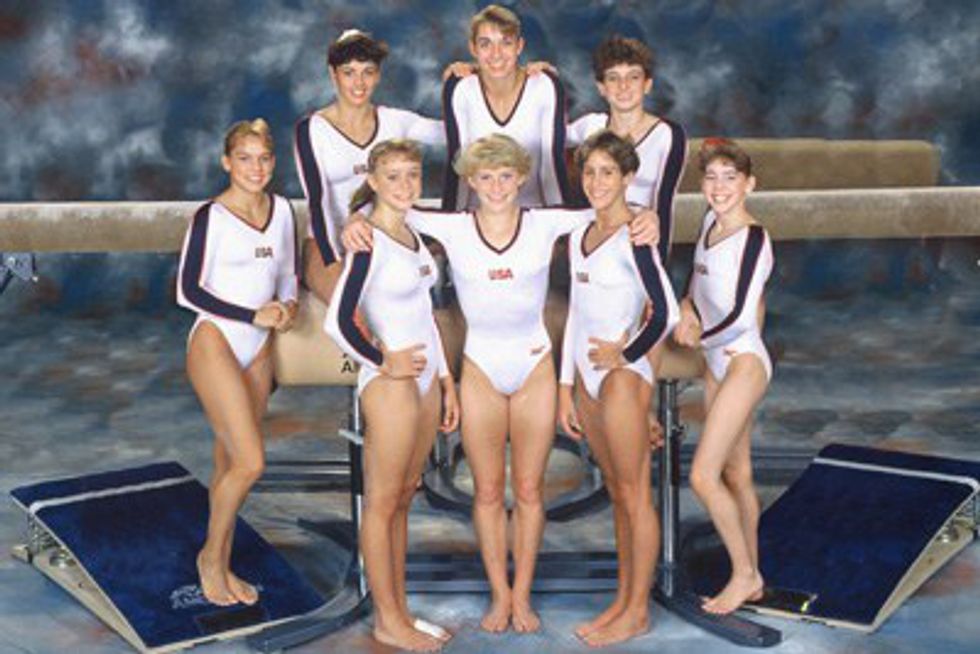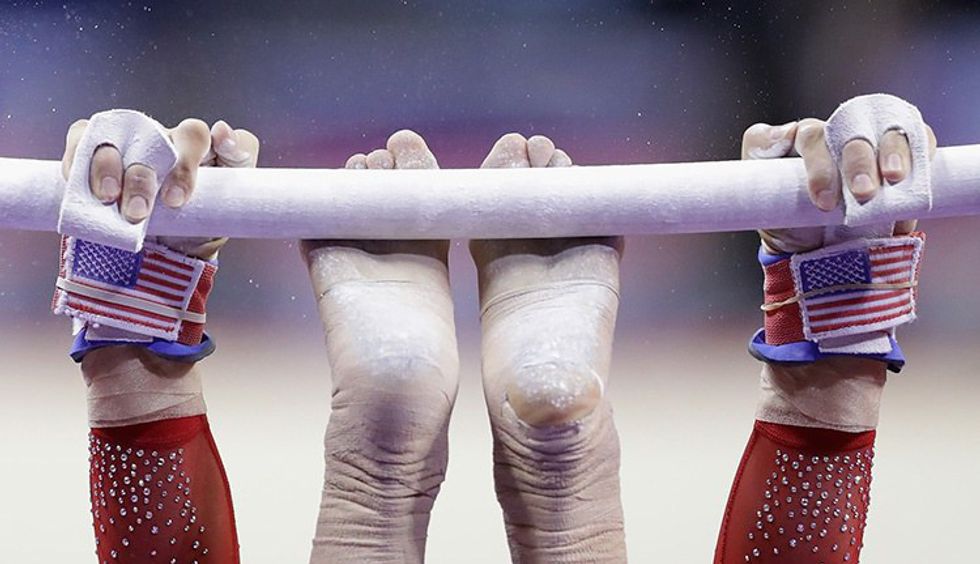In less than three weeks, some of the nation's best and most elite athletes will be representing the United States in Rio for the 2016 Olympic Games. When I sat down to watch the Olympic Trials for U.S Women’s Gymnastics (my favorite olympic sport to watch) and the most diverse team was selected, I was pleasantly surprised. Aside from the fact that the most qualified team was chosen, on the team we have before us two teammates who are African American, one is Latina, and one is Jewish. Together, they represent a range of ages as well as racial and ethnic backgrounds.
Simone Biles was pretty much guaranteed to earn a spot in this year's U.S. women's gymnastics team. While Biles may be among the highest-profile female gymnasts this year, she won't be the only one representing the United States at the 2016 Olympic Games in Rio de Janeiro, Brazil. Biles will be joined by a set of teammates who, together, represent a range of ages as well as racial and ethnic backgrounds. Biles will be joined by Gabby Douglas, who made history at the 2012 London Olympics when she became the first African-American to win gold in the all-around category. Douglas has stumbled a bit during the trials this year, but she's hoping to defend her championship. At 22, Aly Raisman is the oldest member of the team. Raisman, who is Jewish, joined Douglas as part of the "Fierce Five" team that took gold home at the London Olympics. In contrast, Laurie Hernandez, at 16, is among the youngest Olympians competing this year. The Puerto Rican has been making a name for herself since the age of 12. She's been dominating on the beams ever since. Madison Kocian rounded out the final, fifth spot on the team, largely due to her proficiency on the uneven bars.
Together, the team represents a level of diversity in a sport that has historically not seen much of it. To put it into perspective, it wasn't until 1980, when Luci Collins made the U.S. team, that the country had its first African-American female gymnast in the Olympics team. As a result of the U.S. boycotting the Moscow games, however, Collins didn't end up competing that year. While later years saw an increased number of black Olympic gymnasts on the U.S. team, the number of Latinas remained small, though there were notable exceptions in the '80s and as recently as 2004. And in 1996,
It is so refreshing to see how welcoming the USA Olympic team is of diversity and inclusion and being able to see that first hand in the various selections of Olympic teams truly shows how progressive the Olympics have gotten. During a time where America has been ridden with tragedy after tragedy, many because of racial and ethic prejudice, the Olympics offer a platform to show to all Americans that when we come together as one, we not only progress but flourish.

























